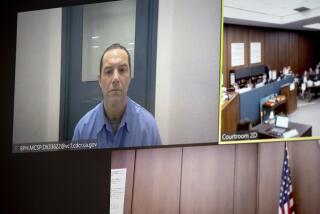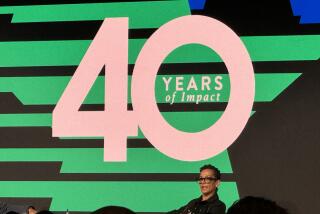Officials Conflict on 9 Drug Tests : Olympics: Former medical officer disputes de Merode’s contention that 1984 documents were hastily shredded.
Questions concerning nine positive drug tests that mysteriously disappeared at the end of the 1984 Los Angeles Olympics remained unanswered despite this week’s explanation by the chairman of the International Olympic Committee’s medical commission that it was an accident.
Prince Alexandre de Merode, in Paris for the IOC’s Centennial Olympic Congress, told reporters that the L.A. Olympic Organizing Committee shredded the records in its haste to close operations. He attributed the account to Tony Daly, the organizing committee’s chief medical officer who is the Clippers’ team physician.
De Merode was responding to reports that the documents from the last two days of the Games were stolen from his office at the Biltmore Hotel and then destroyed before testing procedures were completed.
Daly, who last week told The Times he did not know about the nine positive tests, contradicted De Merode’s explanation.
“We would never take his records, and we didn’t even have shredders,” Daly said this week. “I don’t know where he came up with that. I never said anything like that.”
The organizing committee did use shredders to destroy the mounds of paperwork it generated from the ’84 Games, but Daly said he was unaware of how those documents were discarded. The local organizing committee usually would not have access to IOC material.
“They’re his records,” Daly said of drug tests. “(De Merode is) the only one who gets it. Then he’s saying that we took his records and shredded them?”
Daly, who was chief medical officer for soccer’s World Cup ‘94, was surprised that De Merode blamed him for the mishap.
“Maybe (because) I’m completely out of the Olympic movement and I haven’t talked to him for 10 years,” said Daly, who speculated that De Merode simply lost the data.
Under IOC protocol, data for positive “A” samples were sent by the UCLA drug-testing facility to De Merode, who notified the federations of the athletes involved. Federation officials were then supposed to notify the athletes and coaches. The athletes or their representatives were allowed to witness the testing of a “B” sample to confirm the positive result.
UCLA officials said the laboratory was never asked to test “B” samples for the nine positive tests. That has sparked a controversy as to what happened to test results of the “A” samples.
“I really don’t think there is a cover-up,” Daly said. “Why would they want to do it? De Merode is the only one who knew. I could be wrong, but I think he somehow lost the records in a hurry to get out of there and he had no idea where they were.
“Maybe they were destroyed, but I didn’t destroy them, nor did anybody. . . . Well, I can’t say that, but I know personally I never destroyed them.”
More to Read
Go beyond the scoreboard
Get the latest on L.A.'s teams in the daily Sports Report newsletter.
You may occasionally receive promotional content from the Los Angeles Times.






